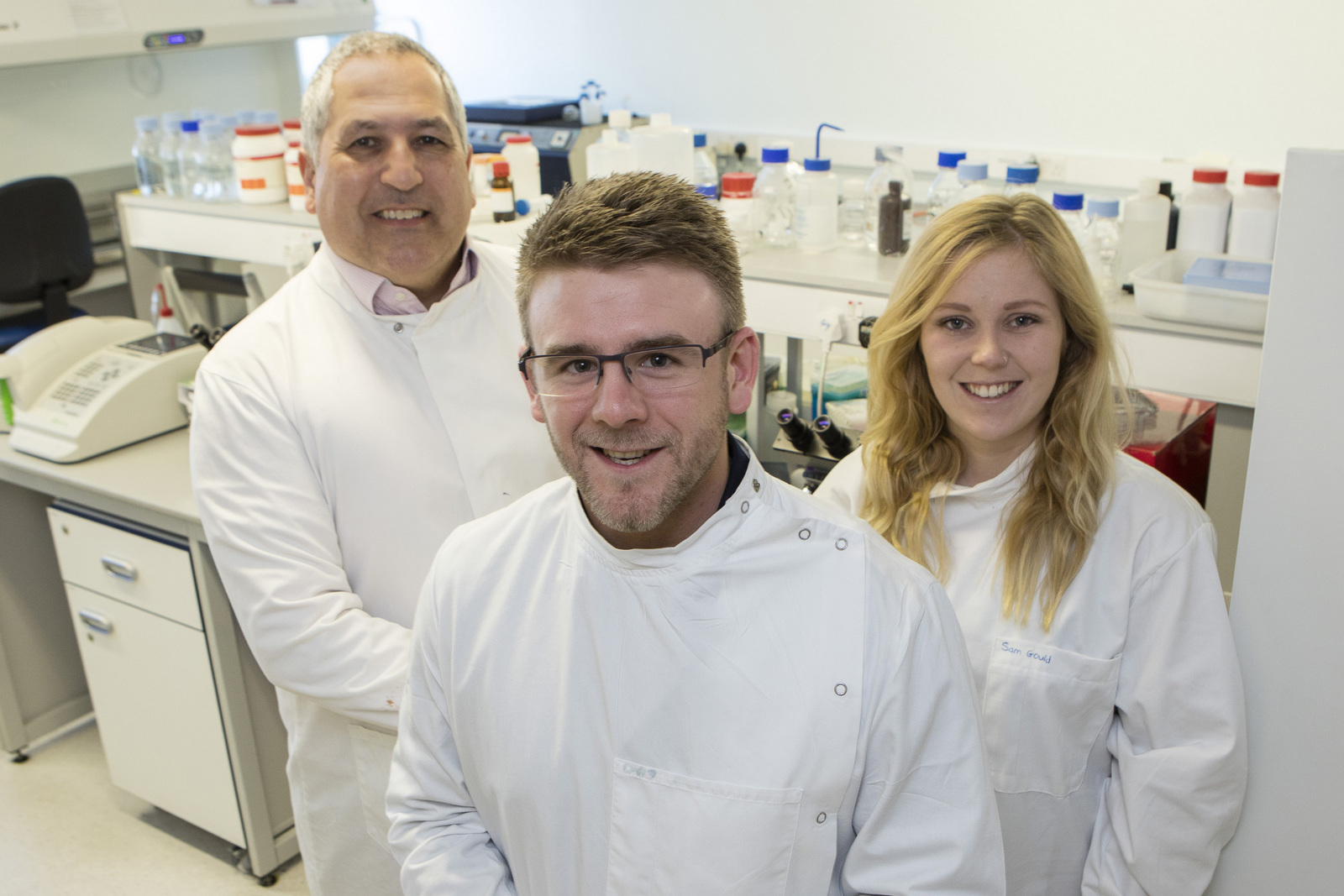
A dental student has received an award of £1,000 to undertake a research project to produce a 3D model to grow tumour-like cells to better understand a common type of mouth cancer.
Michael Daldry – first-year dental student from Plymouth University Peninsula Schools of Medicine and Dentistry (PUPSMD) – received the funding from the Peninsula Medical Foundation, a charity that fundraises for PUPSMD.
The project, which would potentially open the door to treatments and therapies, is part of the Inspire scheme. Led by the Academy of Medical Sciences and funded by the Wellcome Trust, the Inspire scheme aims to encourage medical and dental undergraduates to pursue scientific research.
Michael will use 3D artificial oral muscosa cells (developed by Dr Vehid Salih and Sam Gould from the Peninsula School of Dentistry) to emulate oral cancer in laboratory conditions.
Michael said: ‘I’ve a keen interest in maxillofacial and oral surgery, and shadowing consultants in preparation for interviews I realised many were active in research.
‘As the concept of evidence-based practice continues to advance, I feel it is important to have fundamental cell biological research knowledge and understanding to provide the best possible care for our patients. This is why I am involved with this exciting tissue engineering research and my thanks go to PUPSMD and the Peninsula Medical Foundation for this opportunity.’
Oral cancer
In 2014, 11,449 new cases of oral cancer were diagnosed in the UK, and there were 2,386 deaths caused by the condition. Survival rates for head and neck cancers range from 19% to 59% and 91% are preventable.
By mimicking tumour cell creation, development and growth is squamous cell carcinoma (the most common type of mouth cancer, accounting for 90% of cases) it is hoped that Michael’s project will create a replicable and reliable system to test a number of factors including the impact of connective tissue on tumour development, how oral cancer moves and how tumour cells communicate with each other.
Whereas in the past such research might be limited to the number of animal cells that could be acquired and used, this system allows for almost limitless availability of 3D cell models.
The creation of such a sustainable method may well lead to the development of new treatments and therapies.
Dr Vehid Salih, associate professor in oral and dental health research at PUPSMD, commented: ‘We were impressed by Michael’s application and we are looking forward to working with him on this project. Tissue engineering reduces or eliminates the need to use animals in research and provides scientists with more sustainable and flexible call model platforms with which to work. This particular application in relation to the most common form of oral cancer has important potential.’
Denis Wilkins, chair of the Peninsula Medical Foundation, added: ‘The foundation is really pleased to be supporting talented students like Michael, who are helping to further important research and gaining invaluable experience for their future careers in medicine. We wish him well with this exciting venture.’


